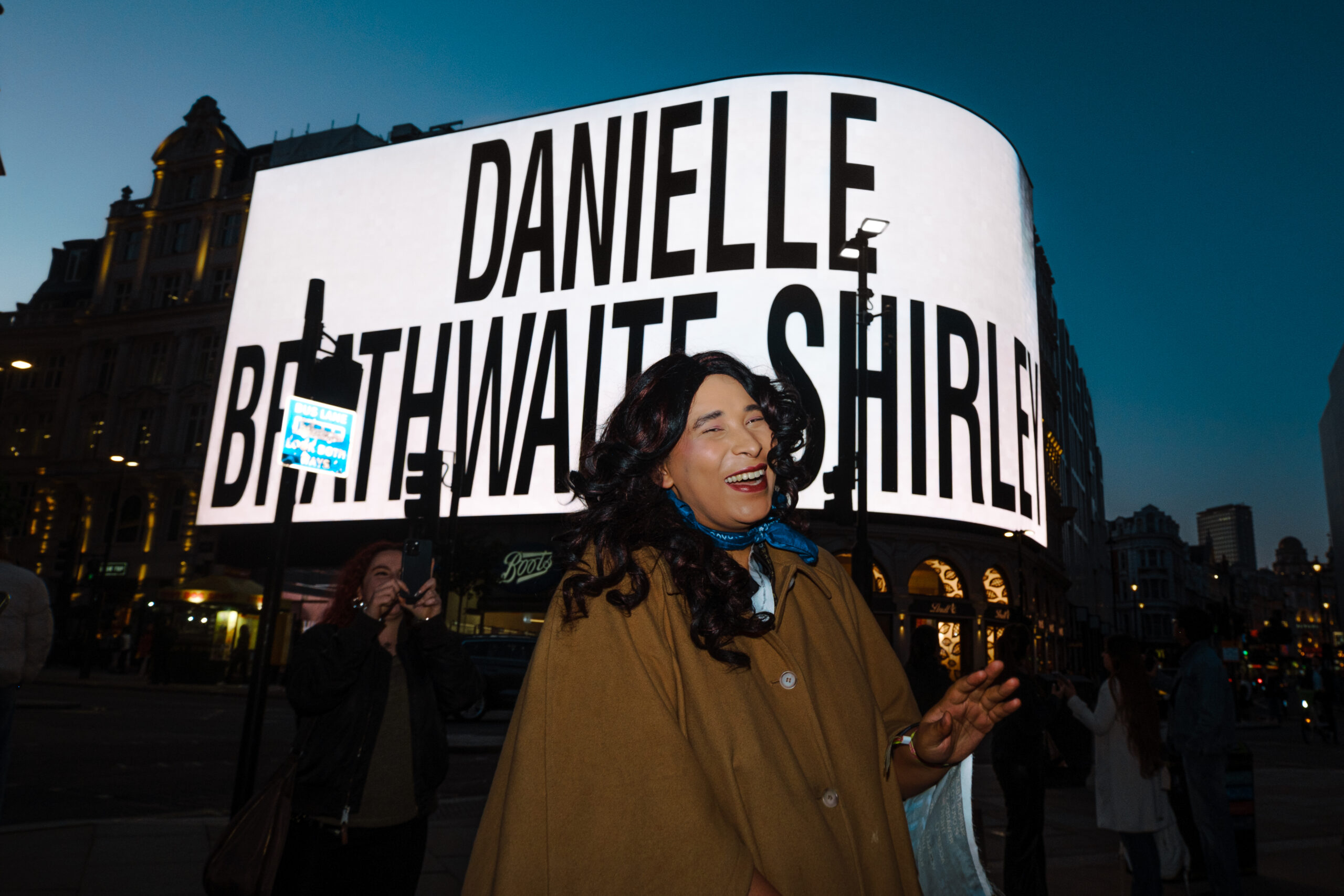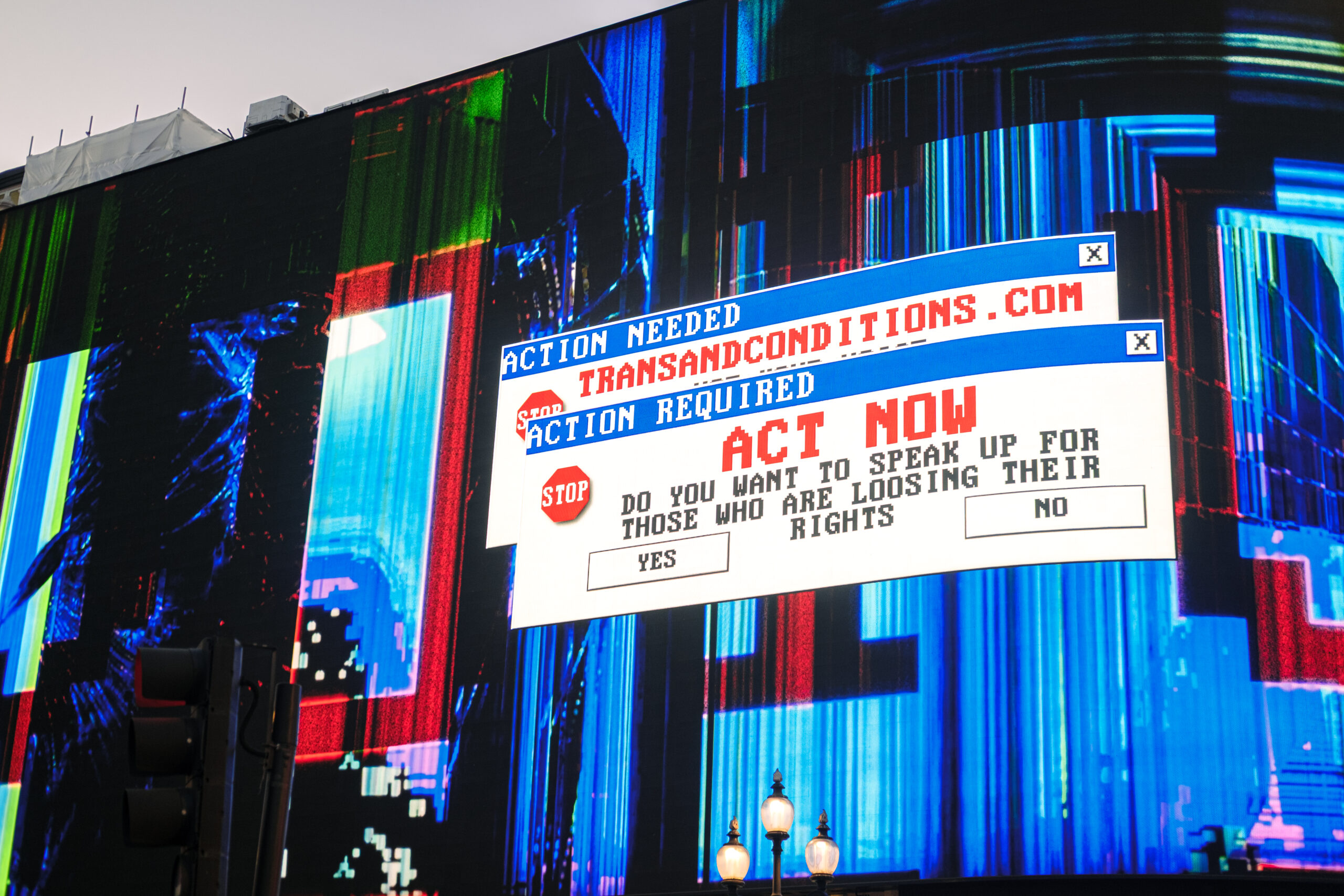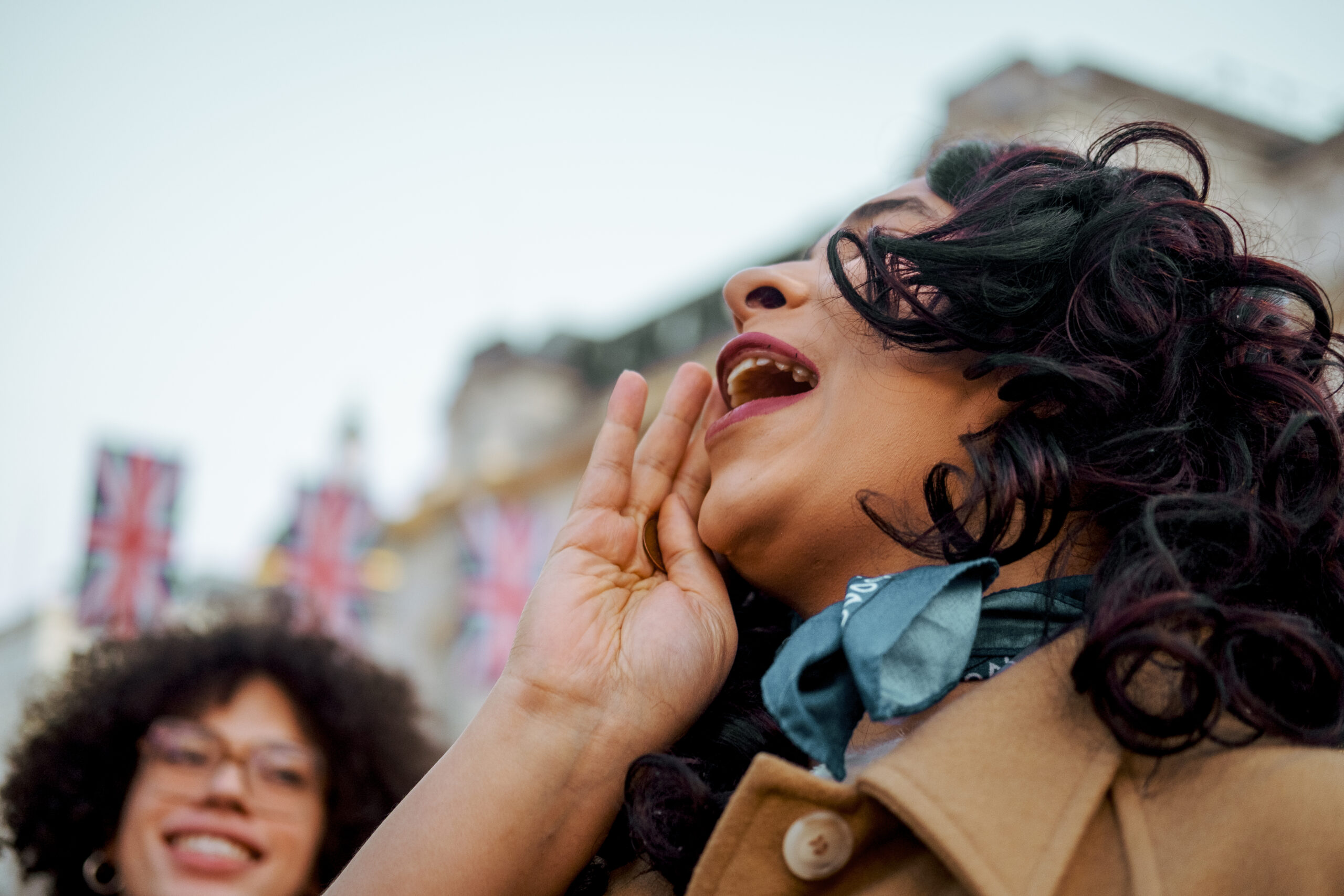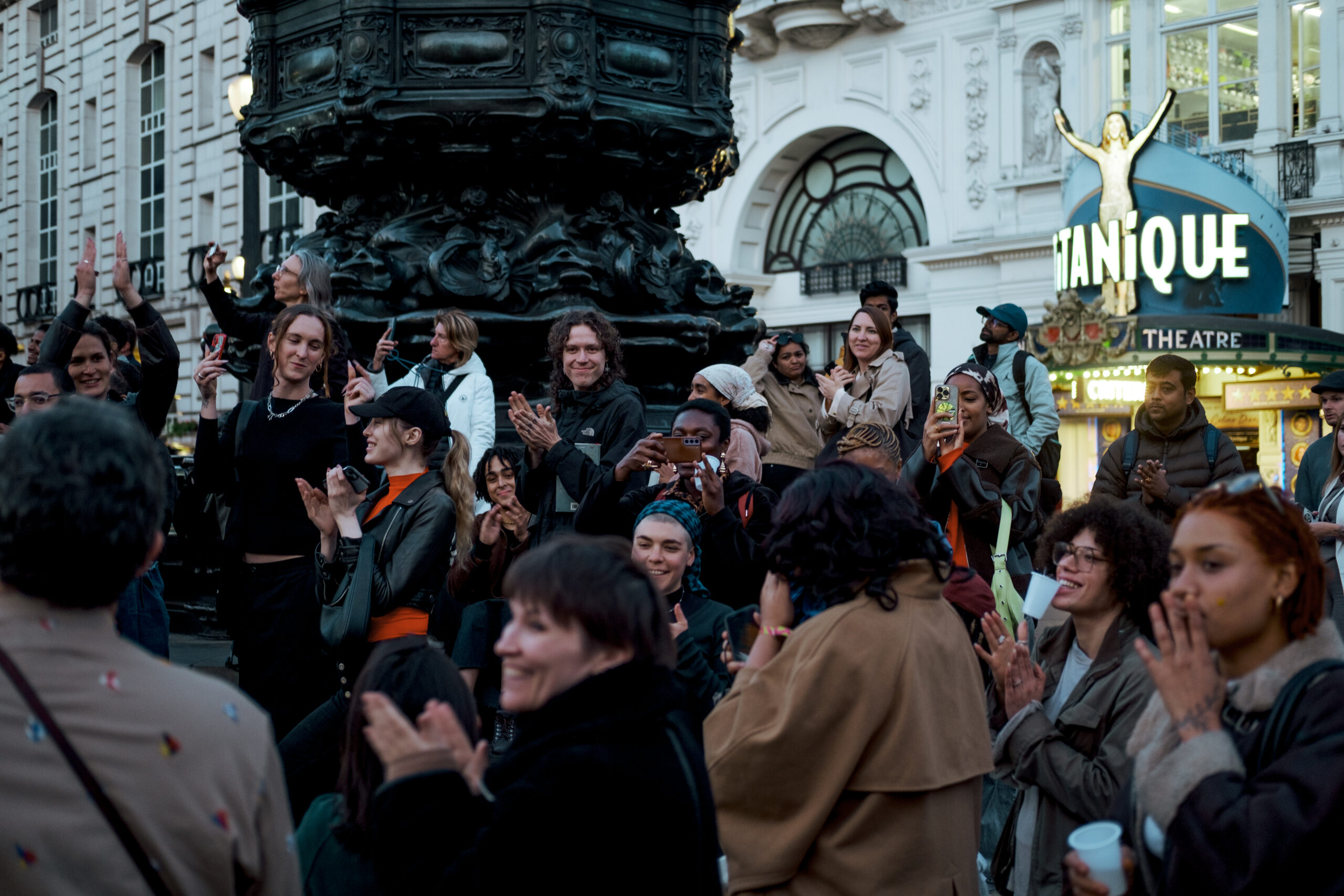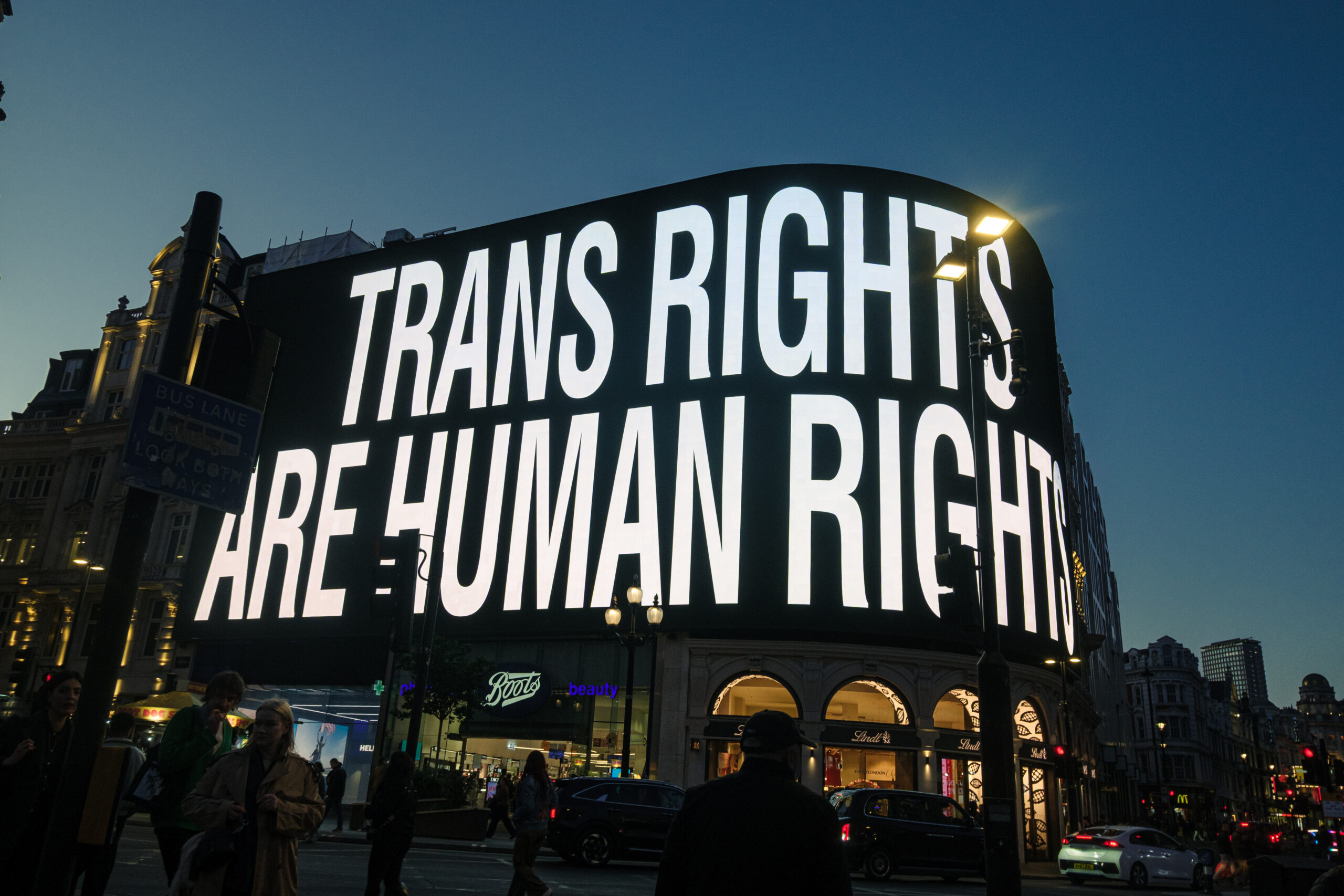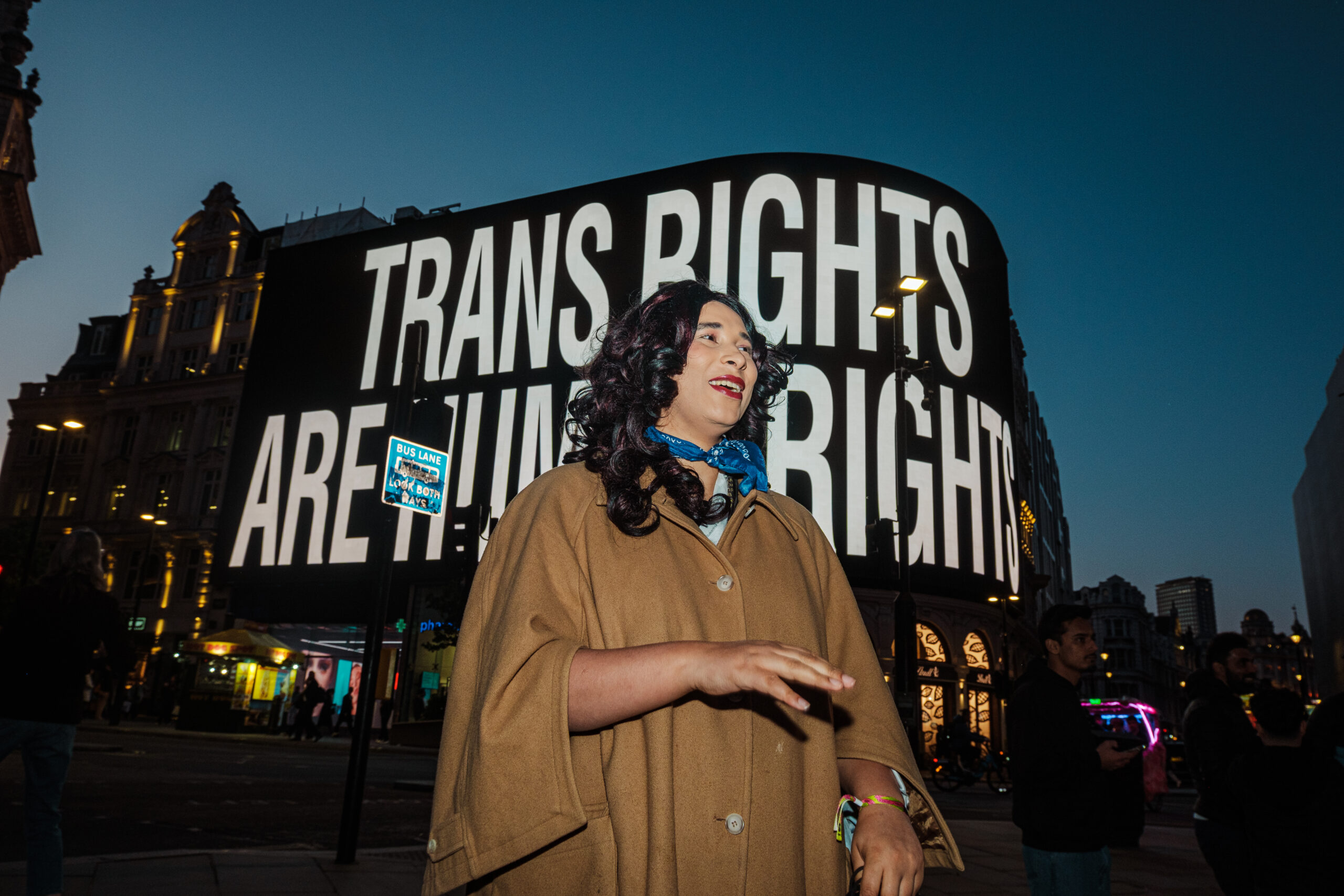DANIELLE BRATHWAITE-SHIRLEY: THE STRUCTURES OF EXISTENCE ARE CRACKING
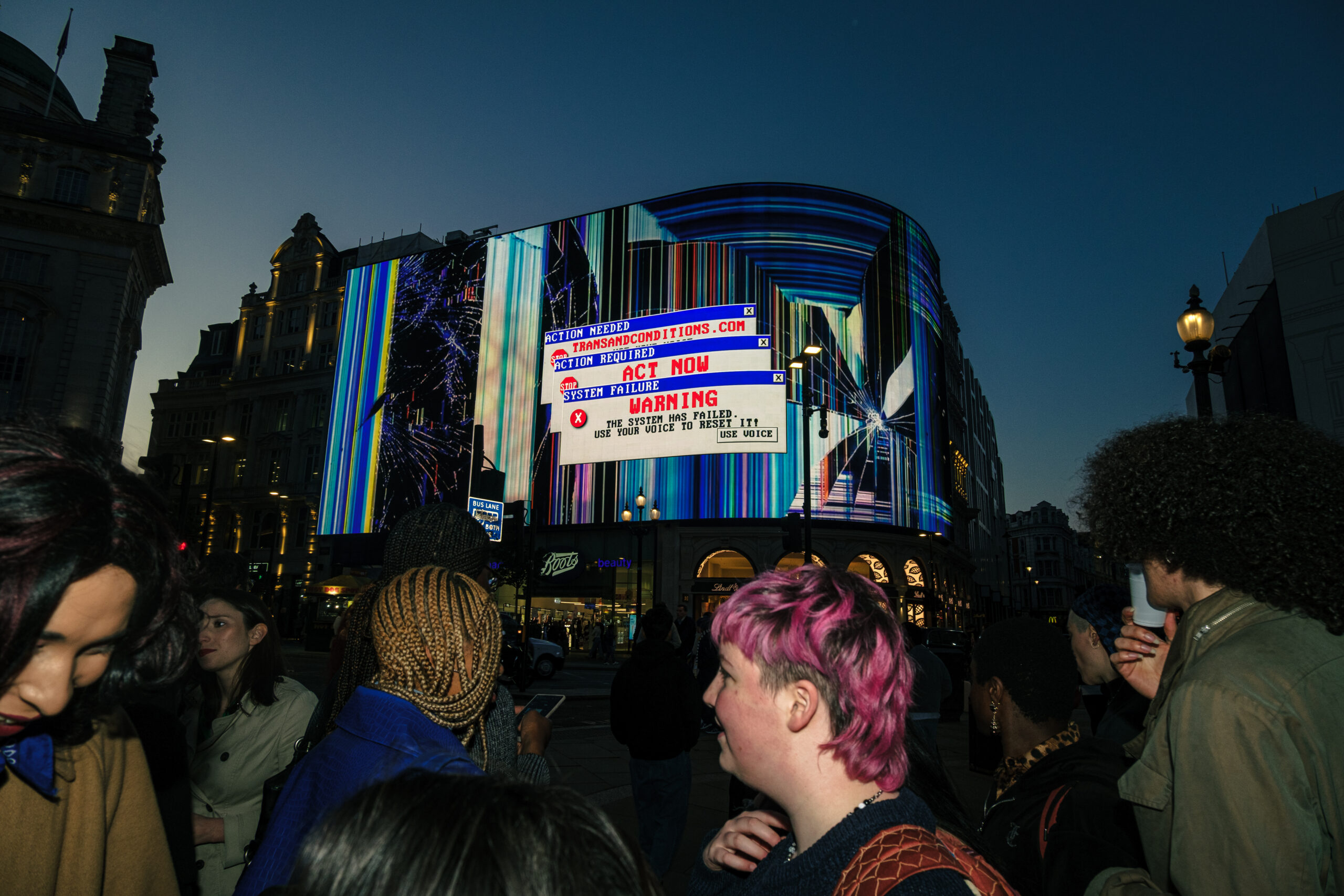
Now is a moment to act, says Danielle Brathwaite-Shirley. As governments arrest protesters and exclude trans people from public spaces, it has become clear that we have entered a new zone, where past rules have been suspended. Individual rights are now being eroded, with far reaching implications for all of us.
But this repressive new regime does not need to be our prison – instead, argues Brathwaite-Shirley, the emergence of dystopia can leave individuals no options but to act.
In new work for CIRCA, Trans & Conditions, the Berlin and London-based artist transforms public space into a site of solidarity and civic action. In conjunction with a screening on Piccadilly Lights, the public are given the tools to speak through a series of prompts on a new web portal, transandconditions.com. The resulting letter stands as a singular statement of belief, while also empowering its writer to take more direct action. The site allows letters to be sent directly to local MPs to convince them to support trans rights, affirming the essential role of collective voice in shaping inclusive public policy. In partnership with UNCLE, hand-picked letters will be fly-posted across streets nationwide, while the full archive will be delivered to 10 Downing Street by CIRCA and Danielle Brathwaite-Shirley at the close of the project.
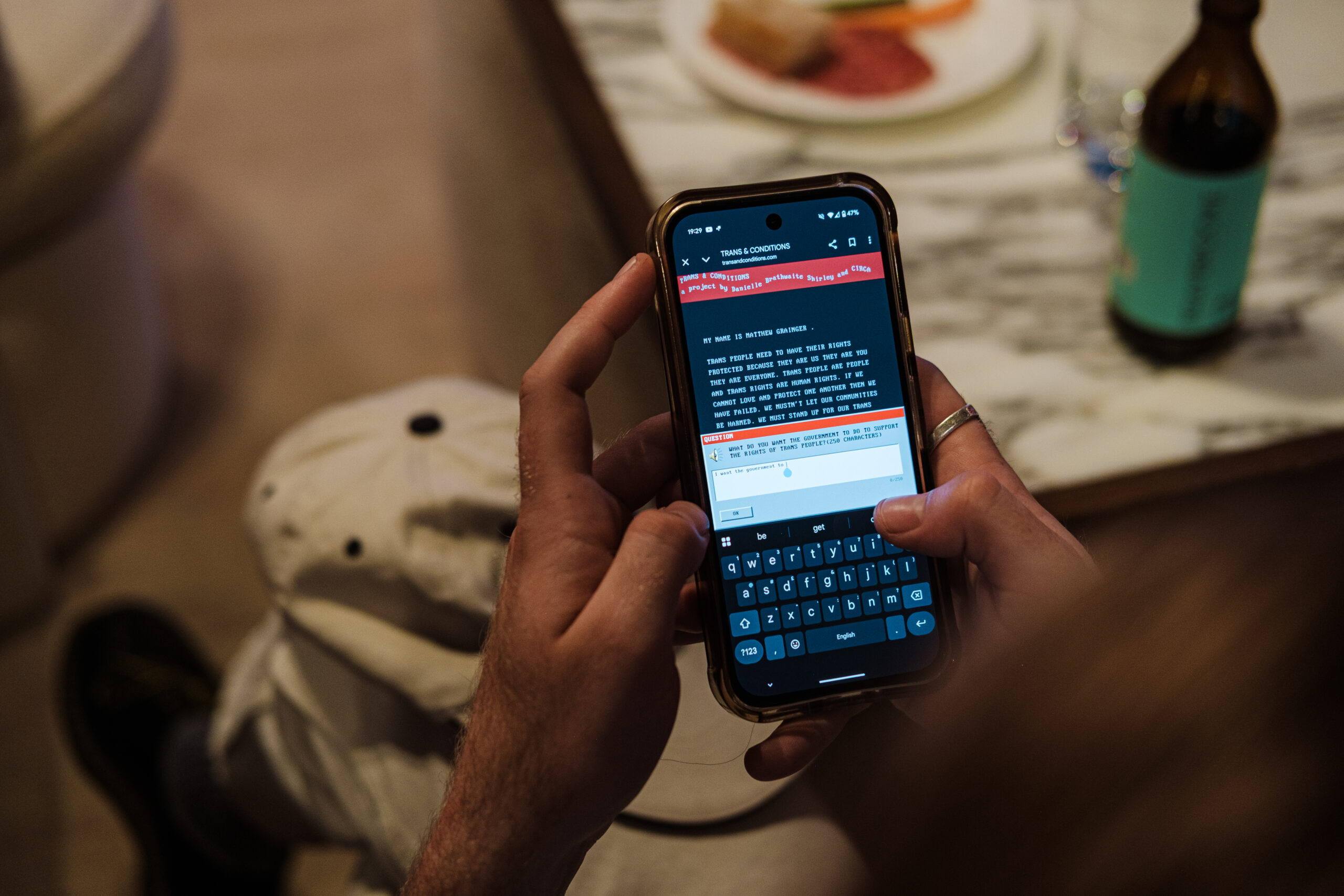
Over the last five years, Brathwaite-Shirley has developed a distinctive body of work that employs the aesthetics and forms of video games to confront, empower, unsettle, provoke and generate agency and responsibility. Working in animation, performance, sound and video game development, the artist mixes lived experience with fiction to imaginatively archive and empower Black Trans stories, featuring in solo exhibitions and performances at institutions such as LAS Art Foundation, Berghain Berlin (2024), Studio Voltaire (2024) and Savanna (2023).
Trans & Conditions follows Brathwaite-Shirley’s recent production of a “Protest Pack”, made just after a landmark ruling by the UK’s Supreme Court ruling that defined the word “women”, under the UK Equality Act, to exclude trans women. The decision sowed chaos and confusion for trans people in the UK, while winning praise from right-wing, anti-trans and reactionary voices. Ahead of the launch, CIRCA talked with Brathwaite-Shirley about her recent wave of work that aims to not only envision new worlds but drive us – in the face of repression – toward action.
[CIRCA] For this recent wave of work, which is pushing audiences to take action, you said the Supreme Court ruling was obviously the immediate trigger – but it wasn’t the only one.
[Danielle Brathwaite-Shirley] It felt like that was the straw that broke the camel’s back. There have been so many assaults on people’s rights recently — not just trans people’s rights, so many people’s rights. Our ability to talk, to protest, to even have conversations around it feels severely limited. What’s in plentiful supply is a lot of fear and uncertainty over what could happen if you speak out. The Supreme Court ruling was just a moment where it felt like: “I have to do something.” I’m not in the practice of being able to organise a big resistance or anything, but this is the way I could do it.
[CIRCA] You’ve described past work as taking place in a kind of “mid-apocalyptic” resetting of the world. How do you view these moments of rupture, when a societal regime collapses?
[DBS] It’s weird because when you have something nice to hold on to, resisting is work. I’m in this trap, now, where I’m like: “Oh, I have enough money. I can stay at home. I got a nice place to live. It’s lovely.” But when, everywhere you turn, you see that you’re in danger or your future might be in danger, there isn’t that option. Your existence is resistance, in some way. It makes you actually stand for something and begin to act on it. You can’t be silent because silence isn’t even an option. It’s not going to keep you safe.
[CIRCA] There’s a great line from one of your arcade games that says ‘YOU MUST DECIDE WHICH TO PICK ANYWAY’.
[DBS] I think in these moments, you do get a lot of people realizing that they can push back just because they literally have to. And I feel that this happens a lot in history: you don’t resist until you must. It feels like we’re reaching that point where we must.
[CIRCA] Is there some agency in that moment, as well as responsibility?
[DBS] If you’re going to support the loss of rights for some people, there’s no use in pretending anymore. You better just do that. So we know. So everyone knows where everyone stands. It’s harder to stand in the middle anymore, because the middle is being eroded.
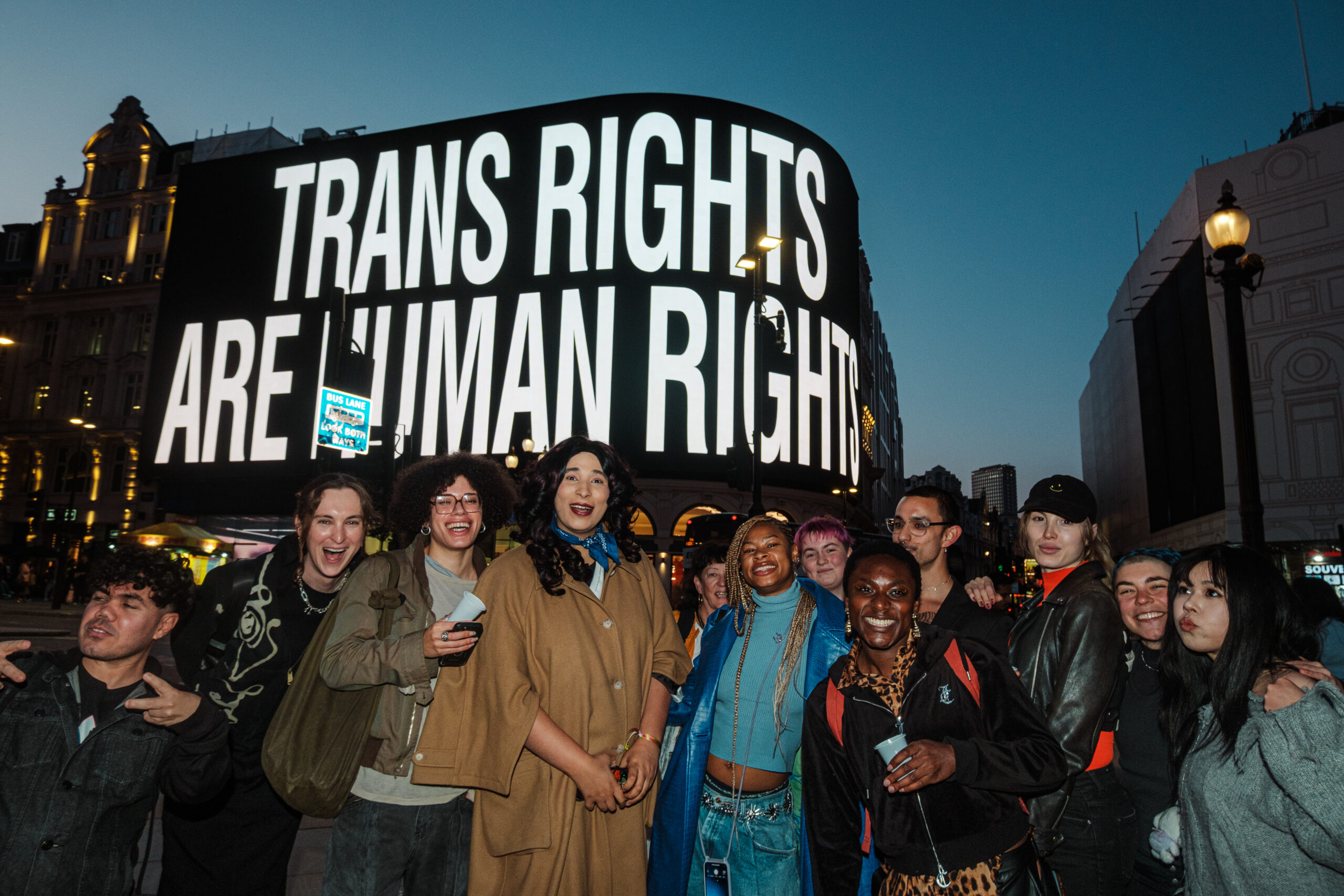
[CIRCA] Your CIRCA commission follows many of your interactive works that push you to make decisions and decide on a course of action. Is it possible for protest imagery to exert the same force?
[DBS] I think images can make you think about what you have done or what you haven’t done. Repeatedly seeing a message – where that message is, and how that image is used – can then make people think about the choices they make. I’ve been thinking about this, with the American elections, and how powerful propaganda is, even when – or especially when – it’s very offensive or when it is referencing propaganda from the 1940s. We see how when propaganda is used and repeated in the present day people take that as a sign that what they’re seeing is clear, factual information rather than trying to influence people to think in a certain way. What I’m going to do is to also turn some of this energy around: to say actually we need to think about the future. We’re seeing a real crack in the structures we live in. It feels like it’s really a dangerous time. And a lot of us are frozen. But it feels good to pretend to not be frozen – to be very active online and pretend to be doing your bit – but actually we have lost the ability to organize and forgotten so many of these ways that we did create change in the past.
[CIRCA] You’ve spoken before about how government repression has gone less noticed in the UK.
[DBS] People can be put in jail for protesting for two years — this is very new in the UK. But it’s not something we even strongly fought, because it’s not something we noticed happening. It happened to one particular, unpopular group, which was [environmental protest group] Just Stop Oil, but now is enforced with everyone. It’s things like this where we’re just seeing a new regime sweep in. I am honest in saying that I don’t know how to resist it. But this is me trying to do something.
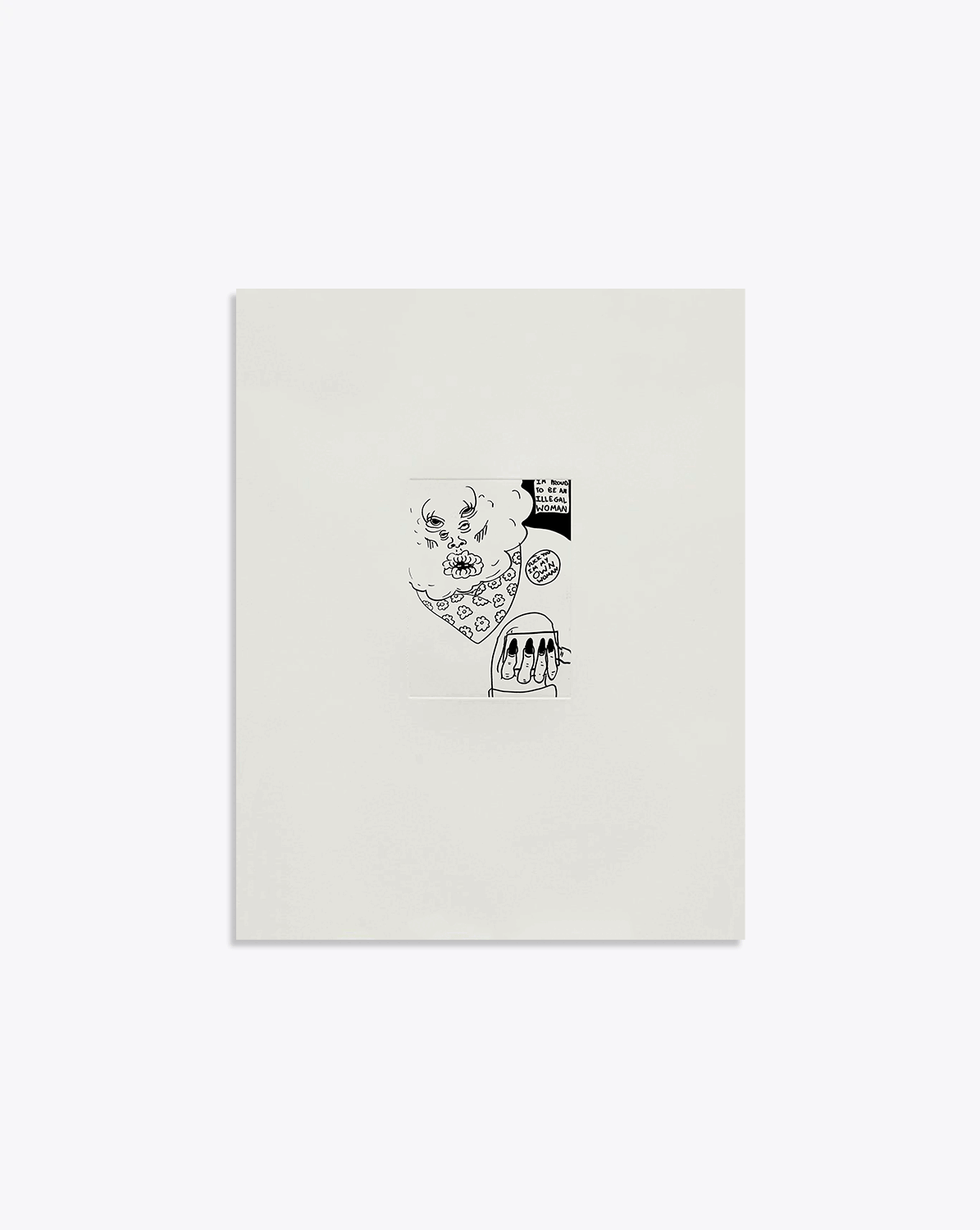
[CIRCA] You’ve had a residency where you’ve been working with some writers and some developers on a new piece for the Serpentine this autumn.
[DBS] Essentially it’s a video game – but after a time the video game turns off and it tries to get people in the gallery to connect. We’re trying to get people that would never actually talk or engage with each other to engage with each other. And that’s the major part of the work. We’re still developing things and figuring out how to do that. In the end, the game asks you to tell them part of yourself or a secret or what you’re scared of. If you think you can speak freely, then you’ve built that trust in playing.
[CIRCA] Your Protest Pack is distributed free, without copyright, so people can print them off, put them on t-shirts and protest placards. What would you like to happen next with the imagery?
[DBS] Ideally I’d like to grow it, with other people, so that they would say “Hey can you make one like this?” and I’d make it. Letting people do whatever they want with it and allowing them to remake the posters if they want. It’s just kind of making an open resource of protest rather than having to rely on this idea of copyright. I’d like in some way to have it included in a larger protest pack with information. But you can do whatever you like. They’re free-use. You don’t even have to ask me.
Danielle Brathwaite-Shirley (b. 1995, London) is a Berlin/London-based artist. They received an BA from the Slade School of Fine Art, London in 2019. Brathwaite-Shirley works predominantly in animation, sound, performance, and video game development. Their practice focuses on intertwining lived experience with fiction to imaginatively retell the stories of Black Trans people. Danielle’s work has been the subject of solo exhibitions and performances at institutions such as Fundació Joan Miró, Barcelona (2024), LAS, Burghein berlin (2024), ,Studio Voltaire (2024), SCAD, Savanna (2023) Artnight Dundee (2023) Villa Arson, Nice (2023) Fact, Liverpool (2022) David Kordansky, LA (2022) Project Arts Centre, Ireland (2022); Skänes konstförening, Malmö, Sweden (2022); Arebyte Gallery, London (2021); QUAD, Derby, England (2021); Albright-Knox Art Gallery, Buffalo (2021); Focal Point Gallery, London (2020); Science Gallery, London (2020); and MU Hybrid Art House, London (2020). Their work has been included in group exhibitions at institutions such as Julia Stoschek Foundation, Berlin (2022); Münchner Kammerspiele, Munich (2019); Les Urbaines, Lausanne (2019); and Barbican, London (2018).
